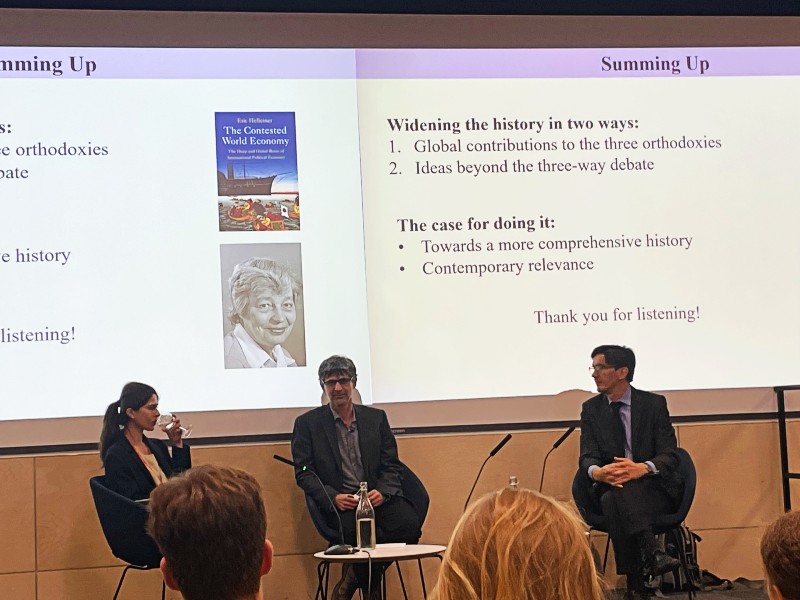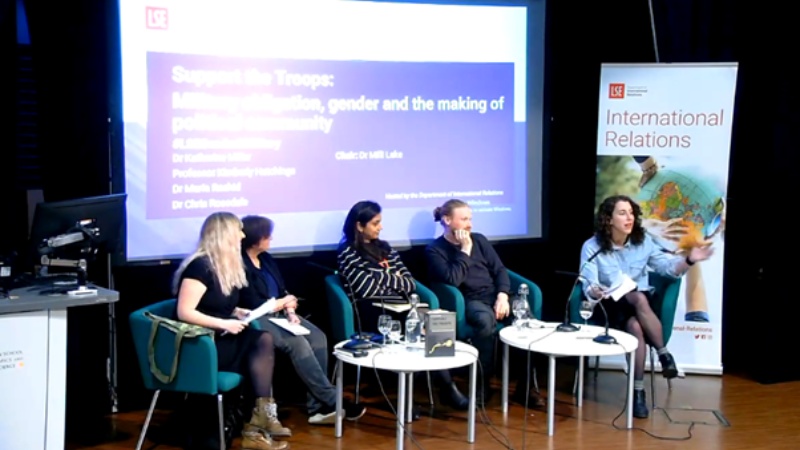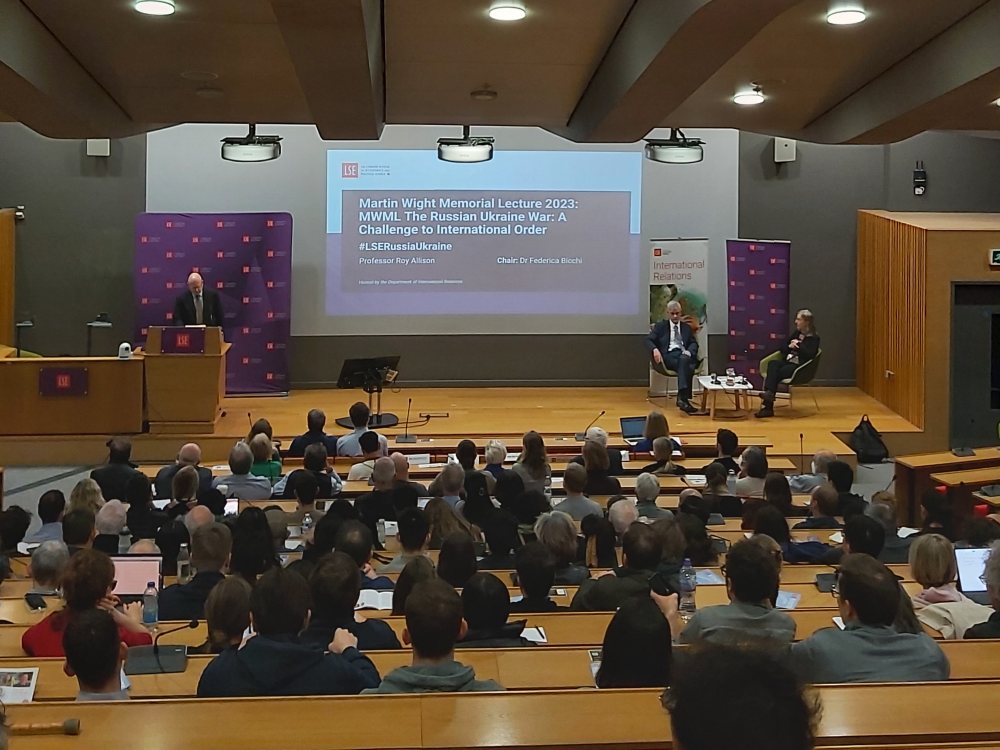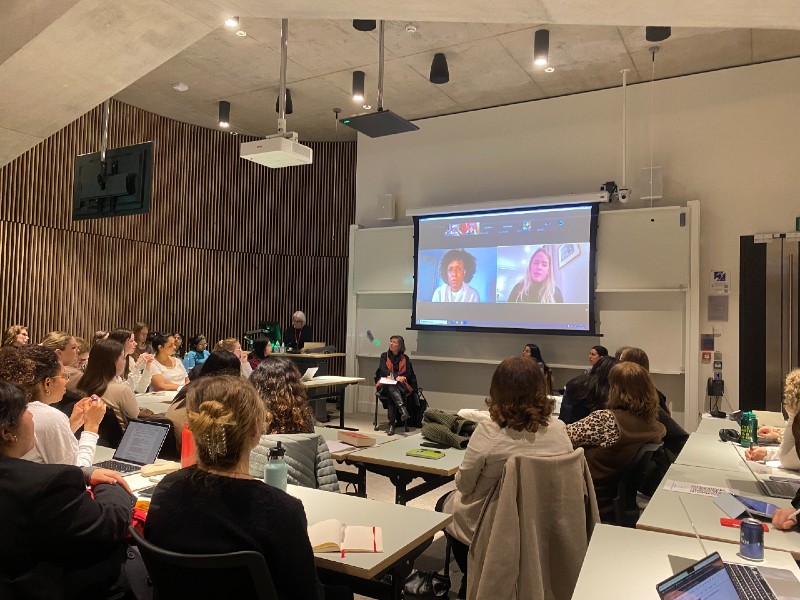On Wednesday, 6 March 2024, we had the pleasure of hosting Professor Michael Driessen from John Cabot University to discuss his latest book, The Global Politics of Interreligious Dialogue. The event also consisted of two other distinguished speakers: Madawi Al-Rasheed, Visiting Professor at the Middle East Centre, LSE, and Fabio Petito, Professor of Religion and International Affairs at the University of Sussex.
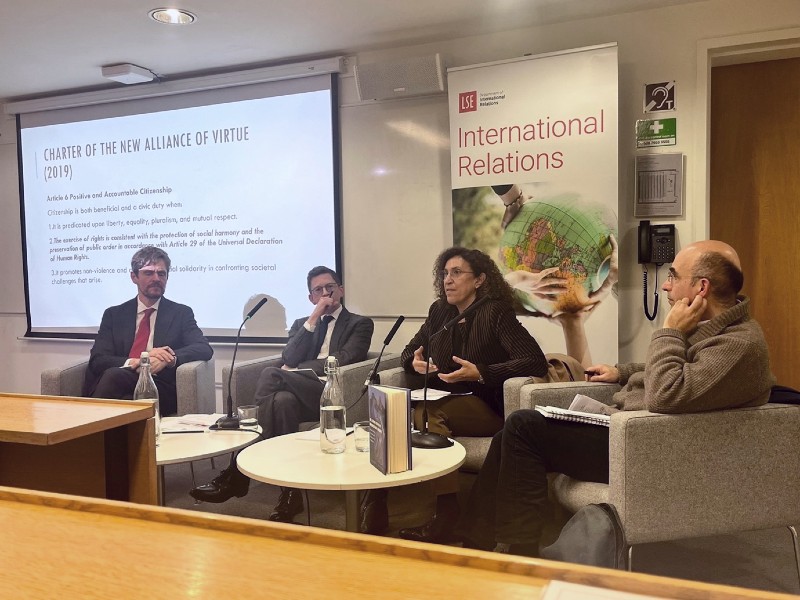
L to R: Professor Michael Driessen, Professor James Walters (Chair), Professor Madawi Al-Rasheed and Professor Fabio Petito
During the event, which was moderated by LSE Professor James Walters, the founding director of the LSE Faith Centre, Professor Driessen began by discussing the recent growth of state-sponsored interreligious dialogue initiatives in the Middle East, where distinctions between religion and politics are blurred compared to the West. He emphasised how these initiatives have geostrategic impulses and genuine religious and social practices. His book presents a theoretical framework that aims to connect the growth of interreligious dialogue in the region to a broader global change. From this perspective, the recent evolution of dialogue is not unique to Islam but part of global religious development in response to globally experienced dynamics of modernity.
religion should be considered a factor in freedom and peace processes
Afterwards, the panellists thoroughly examined the impact of interreligious relations in the region following 7 October. Al-Rasheed commented that religious groups, especially in Israel, are vocal and utilise religion as agents to justify their actions, leading to violence. But how can religion lead to peace? According to Al-Rasheed, the more religion is anchored, the less likely it is to become peaceful. Petito argued that religion has become intertwined with political conflict and violence. He further debated that religion should be considered a factor in freedom and peace processes. The consultation for religion should be included, as a secularist framework does not work for the Palestinian situation.
During the Q&A session, the discussion primarily centred on the role of religion in negotiations and dialogue, such as how religion can inform and influence negotiations, the challenges and opportunities of interfaith dialogue, and the relevance of religious values and principles in conflict resolution. After recent crises, I was wondering whether states will continue supporting inter-religious dialogue despite societies’ resentment towards the West after 7 October.
Event report by Zeynep Egin, MSc International Relations



